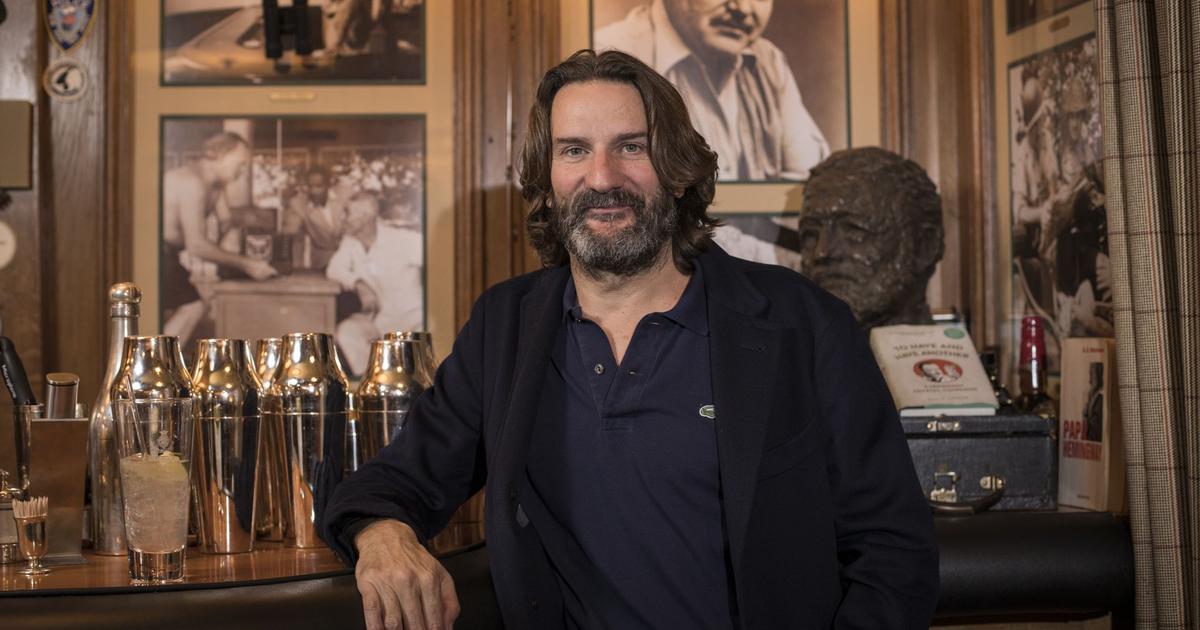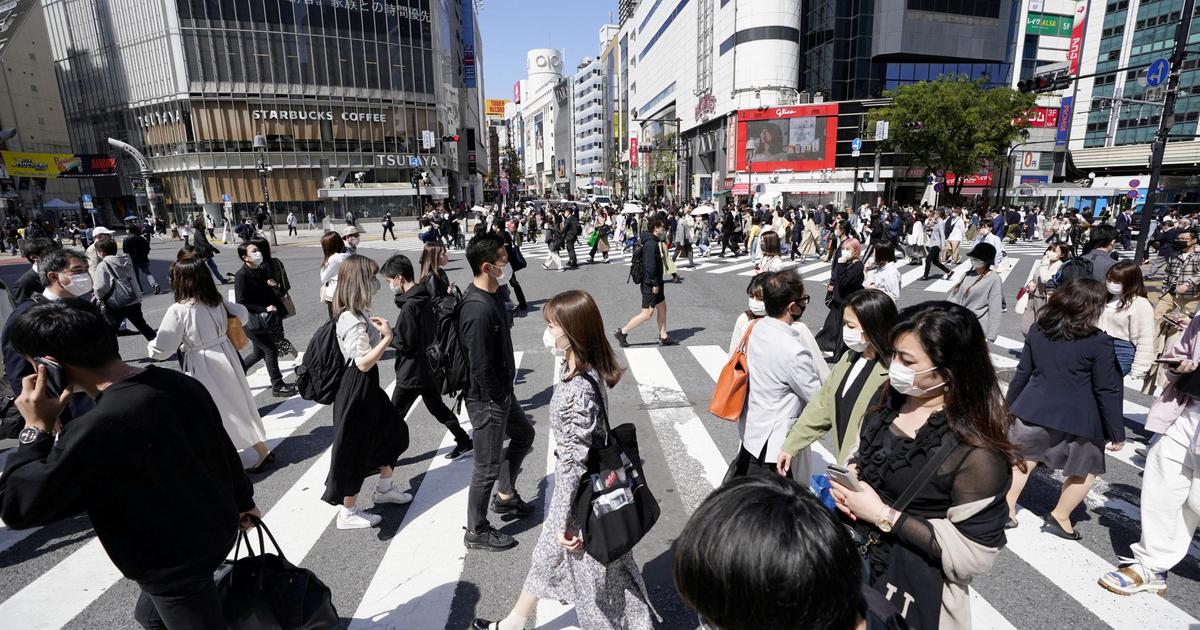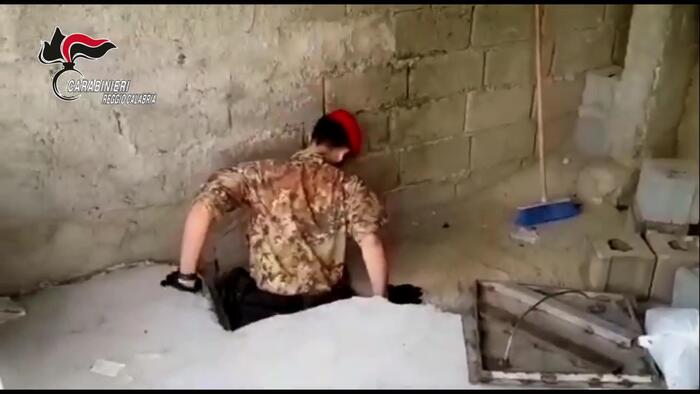The Chao couple closed their textile store in a tourist area of Wuhan on January 20, 2020 for the lunar New Year holiday.
That night on the news of the state network, the country's highest epidemiological authority, Zhong Nanshan, confirmed a bomb: the coronavirus detected in that city a month earlier, which had already officially infected more than a hundred people, yes it was contagious between humans.
The Chaos never reopened that store, not as such.
On the 23rd, exactly one year ago, Wuhan was confined.
It would take 76 days for it to reopen.
In search of the 'ground zero' of the pandemic
A year later, and while the pandemic is out of control in the West, the original focus of the coronavirus barely shows at first glance signs of that trauma that left its streets empty and overflowed its hospitals.
The city has recovered its bustle, its traffic jams and its industrial activity, and is eagerly preparing the arrival of the lunar New Year in a couple of weeks.
The most popular shopping areas fill with crowds on days and hours of leisure.
With no capacity limits, the restaurants assure that they have recovered the levels of before the pandemic.
The new year has been celebrated with massive parties.
Live music meccas like Wuhan Prison, in the university area, are packed day in and day out until dawn.
The temperature controls and the entrance tracking application, which have returned after months of relaxation, are the only indication that China has recorded its highest number of cases since last March.
Officially, the city has not registered new cases since May.
“It's the safest place in the world!” Says Deng, an enthusiastic 25-year-old, repeating a phrase heard over and over again in the city.
“We imposed very strict control measures, massive covid tests were carried out and now we also have our own vaccines.
That shows that China is a powerful country and has done a good job controlling the virus.
I'm very calm, ”she says during her daily walk through Jiangtan Park, on the banks of the Yangtze River.
According to state figures, the cases in the country are almost 90,000 infected people and 4,635 deaths, most of them (about 50,000 infected, 3,869 deaths) in Wuhan, although an official study of seroprevalence indicates that in this city the real number of infections it could be close to half a million.
Chen, a 38-year-old executive, agrees with Deng after finishing her
jogging
session
, a sport she started practicing after the end of confinement to combat anxiety.
"If there is a place where we have experience of how to defeat the covid, it is this," he says.
Although the nervousness is on the surface.
Two weeks ago it was alerted that a covid-infected person in another province had briefly traveled to the city before symptoms were detected.
The shopping street he passed through was temporarily closed, and 8,000 people who may have coincided with the patient were tested.
Groups of friends on social media were filled with warnings asking for care.
This anniversary will not be commemorated in the official calendars.
How those first weeks of infections were managed, from when the first weeks were detected in December until Wuhan was confined, is still the subject of debate, complaints and reproaches between Beijing and Western governments.
Coinciding with the anniversary of the closure, this week an independent panel pointed to China and the World Health Organization to ensure that both could have acted faster to tackle the disease before it spread to the rest of the world.
A WHO mission, currently serving quarantine, is in the city to investigate the origin of the disease.
The local press is not dedicating space to remember that one year has passed since the blockade.
Only the premiere, this Friday, of a documentary on the pandemic,
Days and Nights in Wuhan
,
was scheduled
, which according to state television CCTV "shows the heroism of workers on the front line, but also the strength of family ties."
Since October, in one of the pavilions that were enabled as temporary hospitals during the pandemic, an exhibition also recalls those days to underline the role of the Communist Party - and President Xi Jinping - in the success of the fight against the virus.
"People have already forgotten," says Zhou, a Wuhan man who is very critical of the government and who, during the early days of the pandemic, wanted to record videos of what was happening so that posterity could see it.
“As soon as normality has returned, they have turned the page and no longer want to know anything (…) The authorities are convinced that they have put out the fire and refuse to listen to contrary opinions, hiding their heads in the sand.
This anniversary has become a taboo ”.
Excluded from the official account is the Huanan market, originally considered the origin of the disease and which is still closed today.
Also the warnings to doctors who wanted to alert, to their circles or beyond, about the danger.
And those who criticized the management of the first weeks of the pandemic.
Bloggers and citizen journalists such as Chen Qiushi or Fan Bing, detained since then, former lawyer Zhang Zhan - sentenced to four years in prison for "seeking a fight" - or real estate executive and former party member Ren Zhiqiang, sentenced to 18 years in prison for corruption after criticizing Xi's management against the virus.
Or relatives of the deceased who ask for justice.
One of them is Zhang Hai, a 51-year-old former real estate executive who in the early days of the pandemic, and confident in what the news was saying then - that there were no signs of human-to-human contagion, that everything was under control - led to her father, suffering from Alzheimer's, to his hometown on January 17 for treatment for a broken leg.
After being admitted, the father, a former military man, contracted covid and died on February 1.
His death, his son believes, could have been prevented if the seriousness of the situation had been informed in time.
Zhang has tried, unsuccessfully, to erect a memorial to the victims and sue in court the local authorities of Wuhan and its province, Hubei, whom he accuses of all the errors - withholding of information, mismanagement of hospitals. - the beginning of the crisis.
He has sent a letter - without reply - to Xi Jinping himself, asking that these officials, now dismissed, appear in court.
“The local authorities knew of the existence of the virus and decided to hide information, that is a crime.
Someone has to take responsibility and correct the mistakes ”, denounces Zhang,“ We already suffered from a SARS epidemic (in 2002-2003, in which the Chinese government tried for months to cover up what was happening), what have we learned from that? ?
Chinese officials are not interested in people, they are interested in their position, "says the former executive, today dedicated full time to their struggle.
Despite everything, Zhang defends the central government and believes that if Xi finds out about his situation, he will deliver justice.
"Absolutely," he emphasizes.
Like Zhang, Han Chunhua (assumed name) also lost his father, who died before he could receive treatment and is therefore not listed in official records.
She also calls for a thorough investigation into the errors of the time.
Before the pandemic, he maintains, he had faith in the authorities: “I believed everything the news and officials said.
Now, after criticizing them, I have become an enemy of the authorities, something that I would never have imagined ”.
But neither "would I have ever believed that the authorities wanted to suppress the truth."
In central Wuhan, the Chao tried to reopen their trade when the blockade was lifted in April.
It could not be.
"With the coronavirus, we could not import the fabrics we sold, so we had to reinvent ourselves," they say.
They changed the fabrics for pastels.
“The new business is doing well, more or less like it was before the pandemic.
We cannot complain ”, they assure.
And they repeat what has already become commonplace: "Wuhan is the safest city in the world."
Cases on the rise in the rest of China
Beijing is watching with concern the covid outbreaks that it has been detecting so far this month in the north of the country and that have raised the total of active cases to its highest level since March last year, around 1,700.
Of them, at least 14 in the capital, and several corresponding to the British variant, more contagious.
Bad news for a country that is about to begin its great annual exodus - the largest in the world - for the lunar New Year, which this year falls on February 12.
Faced with what it sees as an increased risk, the Beijing municipal government has convened massive coronavirus screenings for nearly two million residents in the central districts of Xicheng - where most of the main government buildings are located - and Dongcheng.
In Daxing district in the south, where the latest cases have been detected, 1.6 million people have been banned from leaving the city, and another 20,000 are under house confinement.
The recommendation of the authorities is to avoid travel as much as possible during the New Year season, which will last throughout February.
Although it estimates that trips will fall by 40% compared to 2019, before the pandemic, the Ministry of Transport estimates that 1.7 billion trips will take place throughout the month.
For many citizens, especially the roughly 220 million rural migrants, those vacation days are the only opportunity each year to reunite with their families.
Among other measures, the Chinese government has begun to require those traveling to rural areas to undergo coronavirus tests before setting out on a trip.
It has also limited the capacity of tourist places to 75% and has asked university students to avoid returning with their families at times of greatest demand for transport.
Information about the coronavirus
- Here you can follow the last hour on the evolution of the pandemic
- Restrictions search engine: What can I do in my municipality?
- This is how the coronavirus curve evolves in the world
- Download the tracking application for Spain
- Guide to action against the disease









